Till November 2017, 123 Startup Acquisitions Took Place In Indian Startup Ecosystem, In Contrast To 155 In 2016
This article is part of Inc42’s Year-End Stories for 2017 where we’ll highlight the major developments, Indian startup acquisitions from 2017 and their impact on the Indian startups and the ecosystems. Find all the stories of this series here.
In 2017, the Indian startup ecosystem witnessed a large number of startup acquisitions. Some were on the radar, while some were entirely unexpected. However, there were few startup acquisitions which not only caught the eyes but also took the entire ecosystem by surprise.
Interestingly, the deal that made the maximum noise was the one which never happened even after months of speculations and even after the term being sheet signed. That was the Flipkart-Snapdeal merger, which extended for six months from April-September 2017 and yet nothing came out of it.
One of the most talked about acquisition which occurred in Indian startup ecosystem in 2017 was Flipkart’s acquisition of eBay India in April 2017. Through the acquisition, Flipkart was able to add one more weapon to its arsenal, which already includes Myntra and Jabong. Not only this, global ecommerce company eBay managed to exchange its loss-making Indian entity with a 5.4% stake in the rapidly growing Indian unicorn, thereby giving a firm base to its otherwise sinking ship in the Indian ecommerce.
And how can we not talk about the major sensation of 2017 made by Google. Another most talked about startup acquisitions of 2017 was Internet giant Google acquiring four months old Indian startup Halli Labs, based out of Bengaluru. This marked the very first startup acquisition made by Google in India. The startup acquisition has allowed Google to utilise Halli Labs’ advanced AI and ML (Machine Learning) technologies to upgrade older domains and platforms for better performance.
It has now become a part of Google’s Next Billion Users initiative, which is aimed at expanding the search engine giant’s user base by tapping into up-and-coming markets like India.
Overall, the sentiments surrounding the startup acquisitions in Indian startup ecosystem were on the positive side. This could be because, after the 2016 funding winter prompted 1000+ shutdowns, investors have been cautiously trying to make timely exits from their bets in 2017.
Against a total 155 Indian startup acquisitions in 2016, the Indian startup ecosystem observed around 123 startup acquisitions until November 2017, as per Inc42 Data Labs. Thus showcasing a little fall in the startup acquisitions in the Indian startup ecosystem.
As we are about to step into 2018, let’s take in a break down of biggest Indian startup acquisitions of 2017 which gathered a lot of headlines!
High Profile Indian Startup Acquisitions Of 2017
ItzCash
“US-headquartered Ebix Inc acquires Indian payments firm Itzcash for $123 Mn against 80% stake.” I still remember the evening I received this news and a hundred questions raced through my mind.
One of the early movers in the Indian digital payment space, Itzcash had been consistently growing at a CAGR of 60% for the last three years on all business metrics of volumes, revenues and margins. It also claimed to be the largest non-bank PPI (prepaid payment instrument) in the country to have crossed the $2 Bn mark on a card-base of 110 Mn.
With a distribution network of 75,000+ physical retail outlets, a transaction success rate of 99% for approximately $2.16 Bn (INR 14,000 Cr) in payment volume, 600K transactions per day, this Indian startup acquisition by Ebix was certainly one of the biggest deal of the year.
Sparing No Effort To Prove The Adage -Old Is Gold
Naveen Surya, the founder of Itzcash gave a crystal-like clarity on his decision to choose the path of consolidation at a time of growth. In an earlier interaction with Inc42, he shared, “Digital convergence has been the base for us in the last 10 years. Going ahead, in our quest to drive financial service convergence, it all became clear and drive us to bring in a platform to meet a consumer’s financial needs in a PHYgital manner.”
He further added, “With Ebix’s $100 Bn portfolio, we realised that, with their global presence, would also afford us a chance to start expanding and participating globally. It may be a slightly long-term play but let’s say we do a payment service for some of their clients globally, say even 10% of the $100 Bn, it is a huge opportunity.”
As told by the company spokesperson, with this infusion, the company’s early backers Matrix Partners, Lightspeed Venture Partners and Intel Capital exited, clocking returns between 3X-5X. However, Essel Group, who prior to the deal was the largest stakeholder in the firm, still holds 20% stake in ItzCash.
Hence, starting from the idea of a comfortable exit for Itzcash’s investors, it became a $123 Mn (INR 800 Cr) deal, giving ItzCash a total enterprise value of approximately $150 Mn.
What Happened After The Startup Acquisition?
Post acquisition, Itzcash has been rebranded to EbixCash. Also, the founder and Managing Director of the firm, Naveen Surya quit the company with plans to start another of his own venture. But it appears that he has joined a new Indian venture of New-Zealand businessman Richard Chandler’s Clermont Group, the Indie Homefin Pvt. Ltd as Non-Executive Director.
Further, being bullish on EbixCash, Ebix Inc made two more startup acquisitions. The company acquired YouFirstMoney Express, Via.com as well as acquired the MTSS assets of Uttar Pradesh-based Wall Street Finance Ltd for $7.4 Mn in order to bolster opportunities for its Indian subsidiary. For instance, the acquisition of Via will offer significant cross-selling opportunities for EbixCash Financial Exchange portfolio of products.
With the new investment by Ebix, EbixCash is further looking to foray into areas such as credit, insurance, healthcare, and investments to accelerate growth momentum going forward. In lines with this, the company also recently formed a joint venture with Bombay Stock Exchange.
FreeCharge
Competing against players like Paytm, Mobikwik, FreeCharge provides online recharge and bill payment services. It was launched in 2010, a period when the term “fintech” was not even fully known in the Indian startup ecosystem.
This was the era of ecommerce and the Freecharge founders found themselves in seventh heaven when one of India’s leading ecommerce firm Snapdeal held their hands. The company got acquired for whopping $400 Mn at $5 Bn valuation in April 2015.
The Journey From Era Of Ecommerce To Era Of Fintech
However, soon afterward, with the parent firm Snapdeal started reaping in losses, Freecharge found itself tangled in the Flipkart-Snapdeal merger fiasco. And finally, once valued at $400 Mn, Freecharge got sold to Axis Bank for mere $60 Mn in July 2017.
Interestingly, FreeCharge also counted biggies like Paypal, Times Internet, Paytm as well as Bank of Baroda as its contenders.
What Happened After Startup Acquisition?
As per the deal, FreeCharge’s user base of about 50 Mn customers and all of its assets are now accessible to Axis Bank. At the time of deal, FreeCharge is said to be having total assets worth $26.35 Mn (INR 169 Cr) and a total income of about $3.9 Mn (INR 25 Cr).
Apart from this, the 200-member-team of FreeCharge has joined Axis Bank, which will run FreeCharge as a separate entity. With Indian government boosting UPI and bringing all payment modes under its umbrella, going ahead we expect Freecharge to emerge as a strong independent entity.
Zarget
Founded by ex-Zoho veterans, SaaS-based web optimisation and marketing platform Zarget had a dream year in 2016 with over $7.5 Mn funding from investors such as Accel Partners, Matrix Partners, Girish Mathrubootham, CEO of Freshdesk and Sequoia India.
However, the fast-moving ride of Zarget was brought to a halt suddenly by the founders in their last-ditch effort to retain what it had in a high churn, high CAC (customer acquisition costs), and high competition market. In August 2017, the company got acquired by Freshworks, which was apparently a major stepping stone in the career of all Zarget founders.
Interestingly, the startup had over $5 Mn in the bank at the time of acquisition, sufficient enough to continue its solo run for a while and look for new avenues of survival. But things were not as shiny as it looked from outside.
An Unexpected But Inevitable Startup Acquisition
A deeper analysis revealed that in the first year of its operations, the firm recorded a revenue of $255K (INR1.63 Cr), expenses of $291K (INR1.86 Cr) and a net loss of $49K (INR 31.37 lakhs) as per MCA filings. Neither the unit economics nor the existing strategy to attain the product market fit was making sense for the company. Although the investors wanted to see Zarget as the new unicorn, the founders clearly understood the situation and hurdles ahead and thus decided to opt for acquisition.
Founded in 2015 by Naveen Venkat, Santosh Kumar, Arvind Parthiban, Zarget was sold to FreshWorks in a deal valuing the company at around $15 Mn -18 Mn and is a mix of equity and cash payout, mentions Ken.
What Happened After The Startup Acquisition?
Freshworks has been on a startup acquisitions spree for over two years now. Zarget is Freshworks ninth acquisition in the last two years. Through the acquisition, Freshworks looks to further develop Zarget’s marketing suite, in order to bolster reach a wider group of customers. As part of the deal, Zarget as a product will continue under Freshworks’ brand. More than 40 employees have joined Freshworks from Zarget. Freshworks also aims to launch an extensive marketing automation software under the expertise and existing network of Zarget.
Runnr
From its launch to pivot; and from acquiring another startup TinyOwl to its rebranding, this Bengaluru-based startup has been one hell of the newsmaker.
Mohit Kumar and Arpit Dave founded RoadRunnr in 2015 as a B2B delivery platform but soon changed its business model to ecommerce delivery. Later, in 2016, the firm was forced to change the brand name to Runnr, after an unknown company filed a lawsuit against Roadrunnr over an intellectual property right.
The same year, the company again pivoted its business model to become a food ordering and delivery app and even acquired TinyOwl to compete directly with players like Zomato and Swiggy.
A Newsmaker From Inception Till Acquisition
The speculations about its acquisition deal with Zomato first emerged in May 2017. Zomato was reported to be in talks with Runnr to optimise its logistics costs for hyperlocal food delivery. Runnr, at that point in time, was fulfilling 300K orders per month, which was less than 10% of Zomato’s monthly order volume of 3 Mn. Finally, the startup was acquired by Indian foodtech unicorn Zomato in September 2017.
Acquiring Runnr will empower Zomato’s food delivery service to an extent. But the fact that Sequoia Capital is a common investor in both the startups, leaves room for speculation if the consolidation was orchestrated by the investor.
The Indian food delivery space is infamous for being a death valley due to low margin business, making it a space only for deep pocket players. By plugging Runner with Zomato, Sequoia might have got timely exit another loss-making entity.
What Happened After The Startup Acquisition?
Post acquisition, Runnr founder Mohit has continued as the founder and CEO of the hyperlocal startup along with the rest of the founding team. Also, Runnr currently acts as an independent logistics company (owned by Zomato) offering the full stack of logistical services to players other than Zomato as well – e.g. pharma, grocery, ecommerce, etc. At the same time, it will also work to empower Zomato’s food delivery service.
With Zomato aggressively moving ahead to become completely profitable, and its major rival Swiggy also gaining attention from investors such as Softbank, how well Runnr will be able to complement Zomato’s growth strategies in the coming year will be worth watching.
Little Internet
It all began in July 2015, when Zovi founders Manish Chopra and Satish Mani raised a $50 Mn funding round from Paytm, SAIF Partners and Tiger Global Management. The duo marked their entry into the O2O segment with an app-only marketplace Little Internet. At this point, Paytm was said to have invested around $8 Mn.
However, despite its network of over 25,000 merchants present in 17 cities offering 50,000+ live deals across categories like food and beverage, movies, last-minute hotels, health, and wellness, etc., the startup was not able to scale much.
An Example A Face-Saving Tactic?
Thus, Paytm decided to fuel a bit more money to get this investment on right track. Reportedly, Paytm bought the remaining stake from Little Internet’s other investors – VC firm SAIF and Singapore sovereign wealth fund, GIC, for roughly $30 Mn, at the same time giving them a significantly good exit from a loss-making entity. Tiger Global is said to have already sold its stake in Little Internet to Paytm for $5 Mn in 2015.
What Happened After The Startup Acquisition?
Post its acquisition by Paytm, Little Internet’s co-founders Satish Mani and Manish Chopra are on their way out. And Little Internet has been merged with Nearbuy, another deal and coupon’s marketplace owned by Paytm. Paytm now owns around 50%-55% stake in the merged entity.
Nearbuy
Nearbuy, which was previously known as Groupon India, came into existence after Groupon acquired SoSasta in 2011 to enter the Indian market. Post the exit of the founders of SoSasta, Ankur Warikoo took over as the CEO of the company (called as Groupon India at the time).
It was in August 2015 that Groupon India was rebranded to Nearbuy, following the management buyout wherein Sequoia invested $17 Mn.
Over the past two years, with an average ticket size of $16.82 (INR 1080), presence in 33 cities and a merchant network of 23K, Nearbuy tried to scale ahead with all its might. However, its FY16 financials show that the company was generating an yearly revenue of $1.68 Mn (INR 10.8 Cr), against $14.3 Mn (INR 92.3 Cr) loss and $18.8 Mn (INR 121 Cr) expenses.
From Groupon To Paytm!
Just like Little Internet, deep discounts and lack of loyal customers forced Nearbuy to opt for the acquisition route. Also, this was the time when investors had lost their interest in the hyperlocal deals and coupons platforms.
As stated by The Ken, Nearbuy founder Ankur Warikoo proposed the idea of merger with Little Internet to Vijay Shekhar Sharma in 2016 as the majority of their merchants were getting overlapped and together they could have won 90% of the market share.
And here it is. Just a few months later, Sharma materialised the deal and now Nearbuy and Little Internet stand together, with Paytm having 50-55% stake in the merged entity. Paytm also infused another $5 Mn cash in the merged entity, giving them an impetus to start afresh and scale ahead, the Ken report mentions.
What Happened After The Startup Acquisition?
Reportedly, by the next quarter, the deals on the Paytm platform will be powered by the newly merged entity.
As Vijay Shekhar Sharma stated in a media statement, “This combination of Nearbuy and Little marks a great opportunity for us to reinforce our commitment to support small and large retailers in the new age of mobile commerce and payments. I am sure consumers will love the greater selection and reach of everyday deals and discount offers.”
MobiSwipe
Launched back in 2011, MobiSwipe is a payments enabler for merchants to facilitate payments via credit and debit cards through its mobile application. Making its first Indian startup acquisition, the UAE-based payments solutions provider, the OMA Emirates acquired MobiSwipe in February 2017.
OMA’s main objective behind this startup acquisition is to scale its services and portfolio in the Middle East, Eastern Europe, and the APAC regions, which today are more mature fintech markets in comparison to India.
As Suresh Santhanaramakrishnan, Director and Joint CEO, MobiSwipe said after the acquisition, “With the recent demonetisation announcement by the Government, India is swiftly moving towards a more cash free payment environment. The mobile payment market is witnessing a surge and MobiSwipe’s acquisition by the OMA Emirates will definitely give it the right impetus of growth. Alongside, this acquisition will ensure that MobiSwipe makes the right international progress.”
Payments Beyond Borders
Founded by Harmeet Singh Arora and Suresh Santhanaramakrishnan, the Indian startup had received two undisclosed fundings prior to its acquisition. It had raised an undisclosed amount in a funding round in November 2012 from One97 Mobility Fund. In December 2016, it had reportedly raised an undisclosed amount of funding from the OMA Emirates.
What Happened After The Startup Acquisition?
Just a few months after the startup acquisition, OMA announced MobiSwipe’s entry into international markets. MobiSwipe has now started venturing into the Indian subcontinent, including Sri Lanka, Bangladesh, Nepal and Bhutan, the Middle East, North Africa and Southeast Asian markets of Myanmar, Vietnam, Indonesia, and Cambodia as well. The introduction of MobiSwipe in these markets is also in line with the company’s global portfolio expansion plans and its vision to increase the use of digital payment options.
It was also announced that MobiSwipe will deploy over 50K POS devices in 2017 as part of its global expansion. The Indian startup is also in the process of developing the mPoS to become compatible with payments made with QR Code, Samsung Pay, and Apple Pay.
India Webportal
Launched in 2010, India Webportal was a digital media distribution company. It is a JV of Zee Entertainment Enterprises Ltd (ZEEL) and Penske Media Corporation, which is a US-based digital and publishing giant. Initially, the company was formed with 51% shareholding of ZEEL.
Based out of Mumbai, India Webportal India had three regional offices in NCR, Bengaluru, and Kolkata. The platform distributes its content through 13 digital brands including – India.com, Bollywoodlife.com, CricketCountry.com, TheHealthSite.com, BGR, among others. It also claims to have been reaching 8 Mn consumers on a monthly basis.
Found A Recourse From Mounting Losses In Parent Firm’s Camp
However, as per media reports, the company was suffering from mounting liabilities and was shackled in losses. In FY ’16-17, India Webportal earned a total income of about $10.2 Mn, while its losses stood at $2.15 Mn (INR 13.8 Cr) during the same period.
The parent firm Zee Entertainment thus bought the remaining 49% holding in the company from existing investors MMC Investments Holding Company II Ltd (44%), and Ashok Kurien (5%) for $30.7 Mn.
What Happened After The Acquisition?
India Webportal Pvt. Ltd. (IWPL) has now become the wholly owned subsidiary of Zee Entertainment. It will act as the digital arm of its parent company and has the potential to consolidate and scale up its parent firm’s business.
Sokrati
Pune-based Sokrati is a digital media startup engaged in data analytics and performance marketing. It offers integrated digital services, circling around advanced data analytics and CMR based marketing. This included the integration of offline and hyperlocal marketing to its ecommerce client base.
The startup was founded by Ashish Mehta, Anubhav Sonthalia, Santosh Gannavarapu, Kaushik Paranjape. Its clientele includes companies like eBay, cab-hailing app Ola, Kotak Life Insurance, telecom company Bharti Airtel, direct-to-home firm Tata Sky and Viacom 18-owned online video streaming platform Voot.
The Second Biggest Acquisition Of Dentsu For 2017 In India
After 2 years of bootstrapping, four years of Series A and two years of Series B funding, Sokrati was acquired by Dentsu in July 2017. The deal was estimated to be somewhere between $108 Mn-$124.4 Mn.
Sokrati was Dentsu’s second big acquisition for 2017. Earlier, this year it had acquired SVG Media.
Sokrati specialises in delivering services in the mobile advertising and ecommerce domains. As per an official statement, the company claims to have a gross revenue of about $3.5 Mn (INR 225 Cr) for the year ended March 2017. It currently employs a staff of 120 digital marketing professionals.
Dentsu acquired the stake with an option of making it a wholly-owned subsidiary in the future.
What Happened After The Acquisition?
Post-acquisition, Sokrati launched Merkel in India in August 2017. Merkle was another of Dentsu’s acquired companies. In the times to come, Sokrati will be re-branded as Merkle|Sokrati and Sokrati’s full staff will join the Merkle team.
“The acquisition of Sokrati increases Merkle’s global scale with a strong entry into the Indian market, which is one of the fastest-growing in the world and an important part of Merkle’s expansion within the Asia Pacific. As our first entry into the India market, it also enhances our data and analytics offering,” said David Williams, president and CEO, Merkle.
Further, Sokrati chief executive officer (CEO) Ashish Mehta, Enterprise Business Head Anubhav Sonthalia and Head of Innovations Santosh Kumar Gannavarapu have joined the Dentsu leadership team. After the acquisition, Sonthalia took charge as the CEO of Merkle Sokrati and currently reports to Vivek Bhargava, CEO of performance, Dentsu Aegis Network India, and Zhengda Shen, President, Merkle Asia-Pacific.
Editor’s Note
A few years back, acquisitions largely implied a hostile takeover of a company’s assets by another market leader. However, with time, this definition has taken a 360-degree turn. Now investors use the startup acquisitions or mergers as route either as a last resort for startups who get tangled into massive cash burn and have lost their way ahead in the ecosystem or in a bid to build a larger company.
The aggressiveness with which SoftBank laid the ground for Snapdeal-Flipkart merger in the first half of the year, clearly indicates that just accepting the failure of their portfolio companies as going with ‘fate’ is not an option now.
Even the startups have started understanding the importance of clubbing their synergies and make a stronghold on the existing market rather than competing with each other. The best examples of such startup acquisitions from this year include Ebix and Itzcash deal and of course, Paytm acquiring Little and Nearbuy.
Although, in comparison to last year, we observed less number of startup acquisitions in the Indian startup ecosystem. But it must be noted that while the number of Indian startups launched this year was much less, the number of Indian startup shutdowns have also decreased this year. This clearly suggests that the market is already moving on the path of course correction.
Going ahead in another year, we expect more startups will come together and will adopt consolidation as a survival route or to grow massively rather than drawing curtains. And thus, we will witness more startup acquisitions in the Indian startup ecosystem.
While these were the high profile Indian startup acquisitions reported by Indian startup ecosystem in 2017. We have many more interesting stories in our bank for our 2017 In Review Series, stay tuned for the next story on the biggest controversies of 2017!









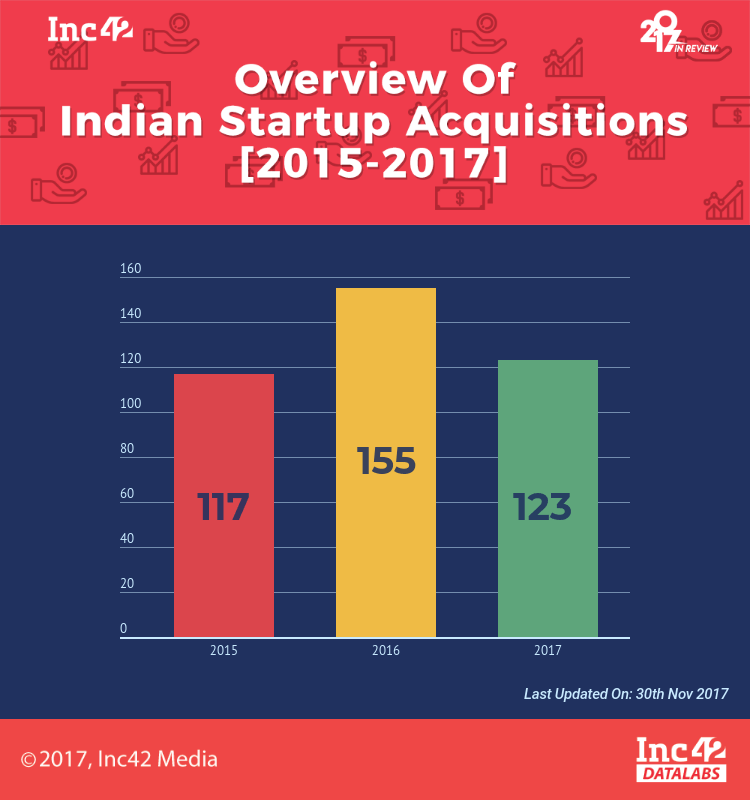
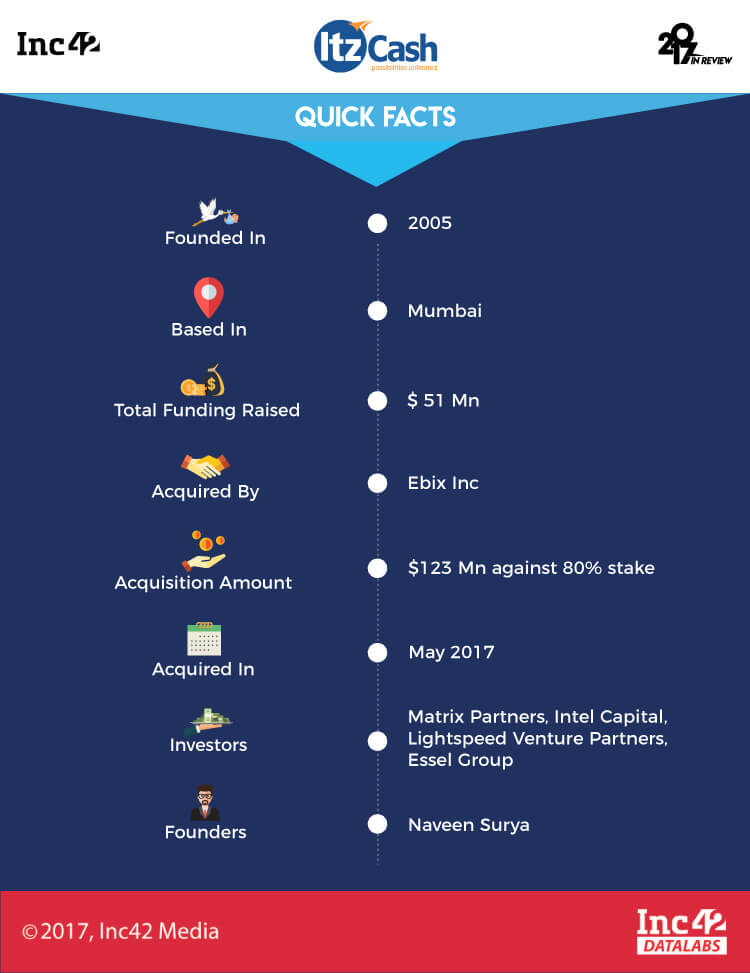
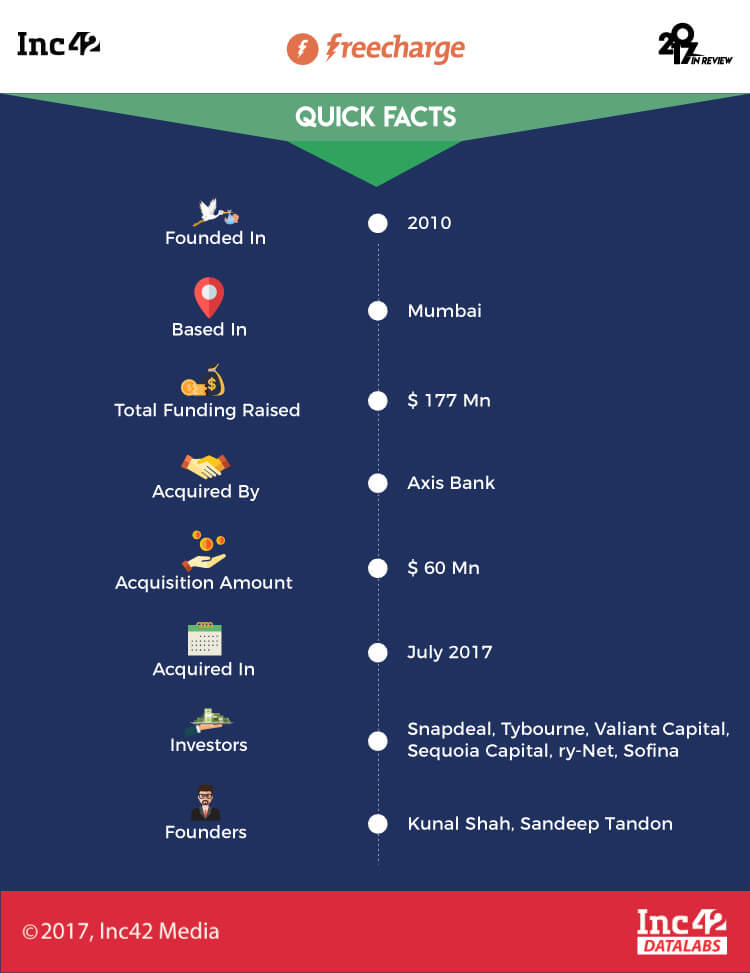
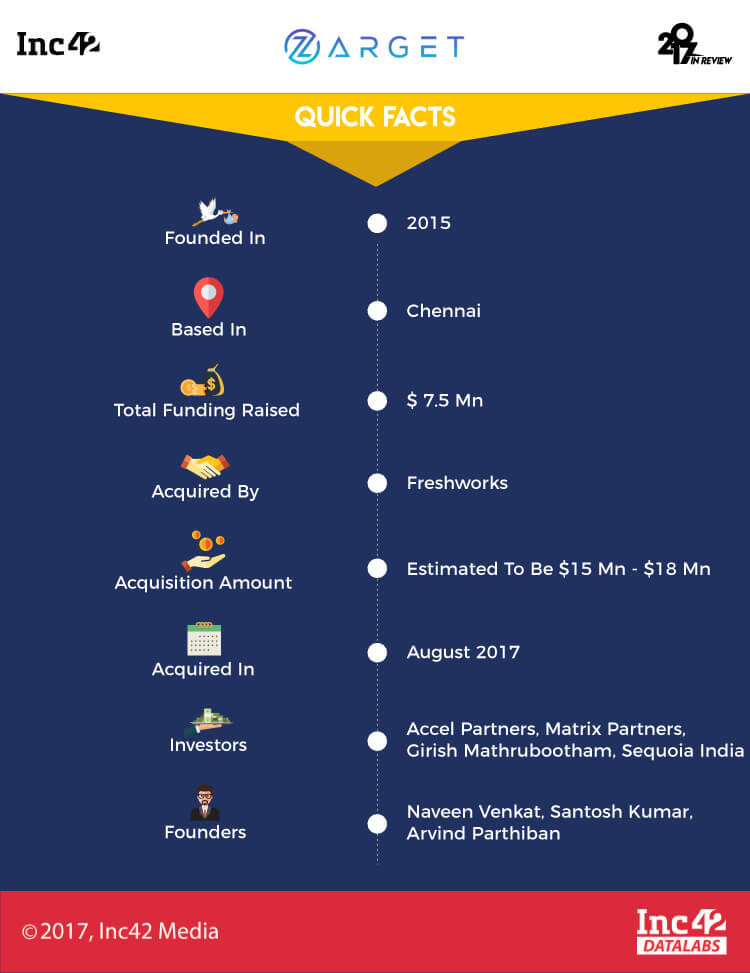
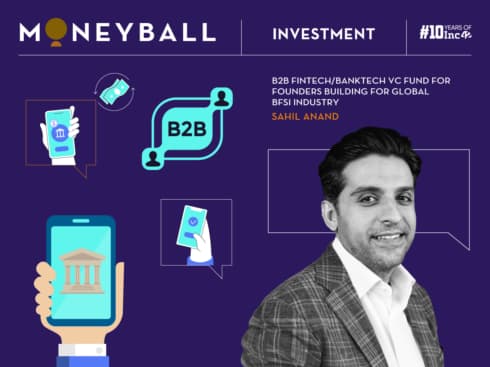



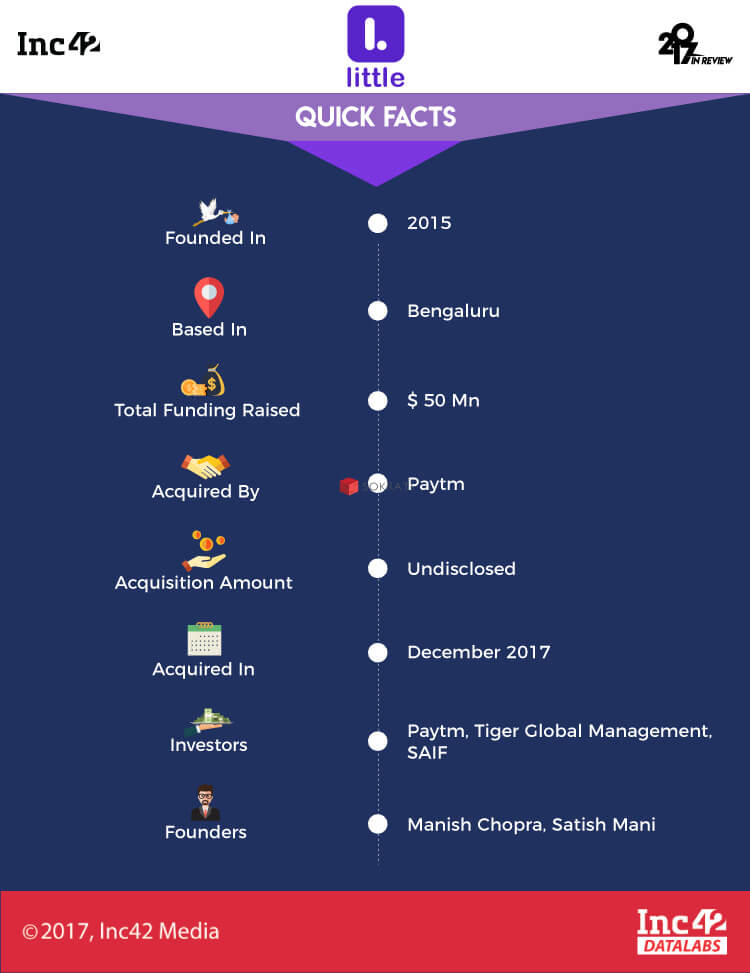
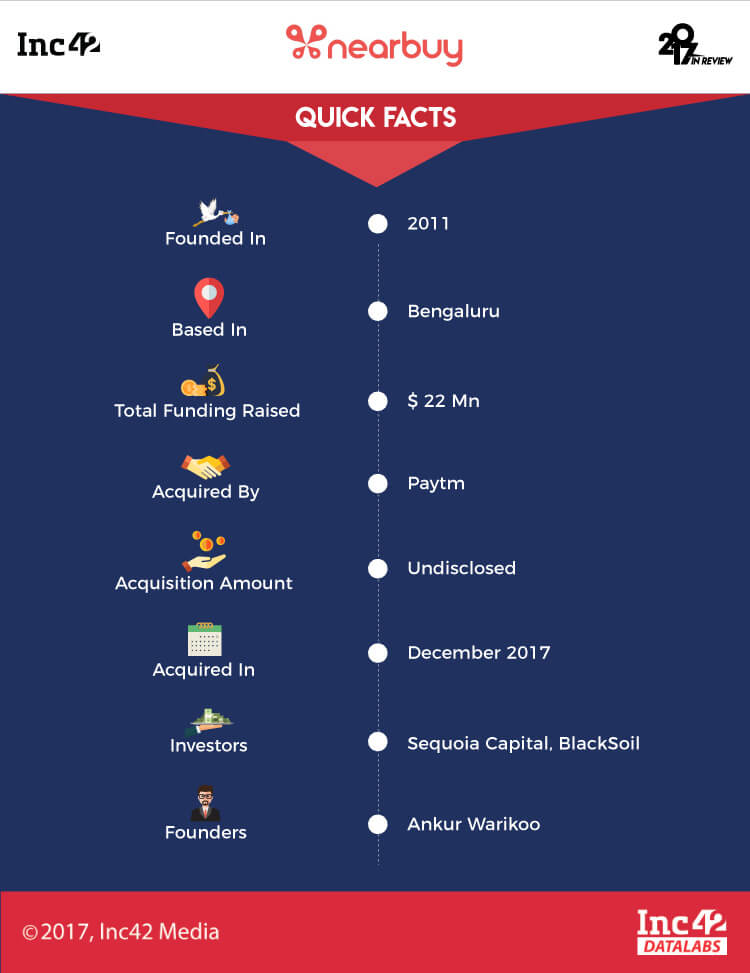
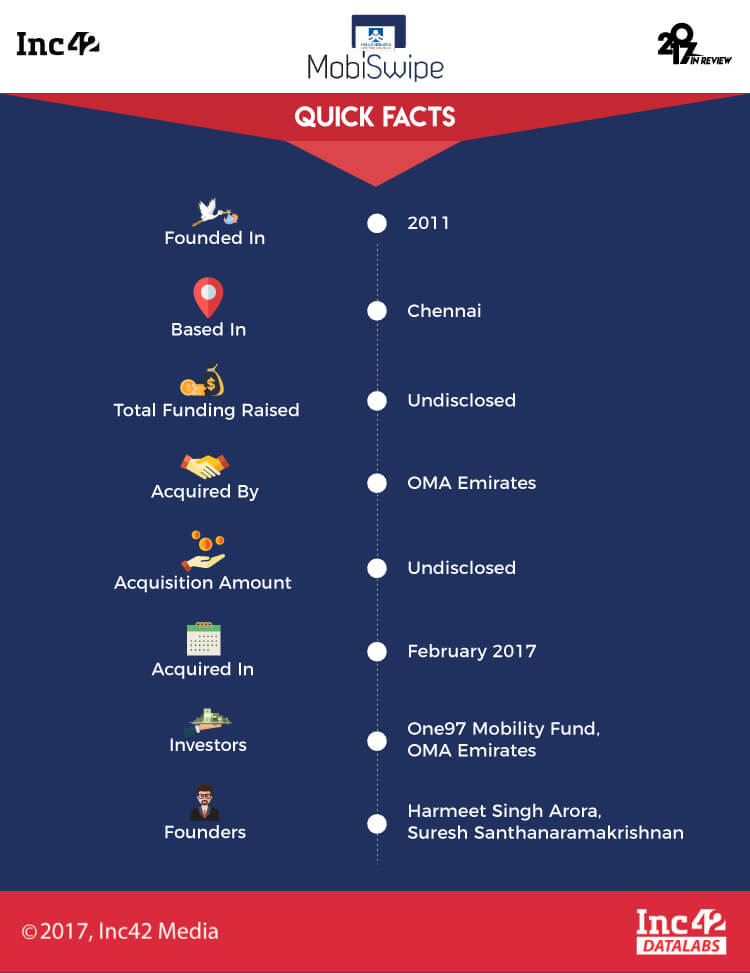
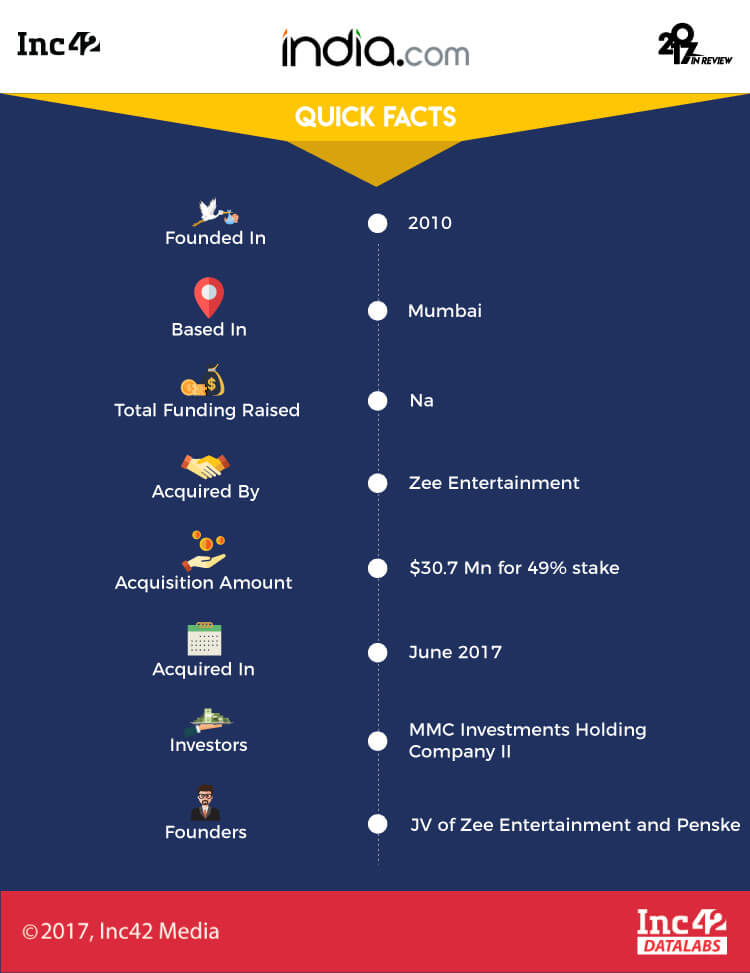
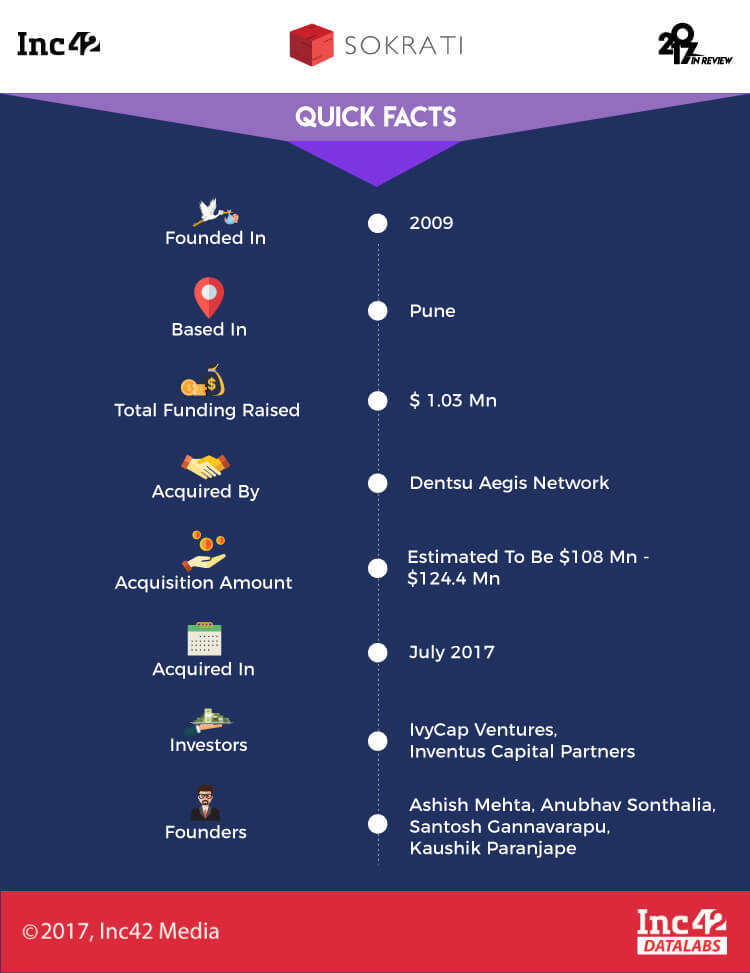




















 Ad-lite browsing experience
Ad-lite browsing experience